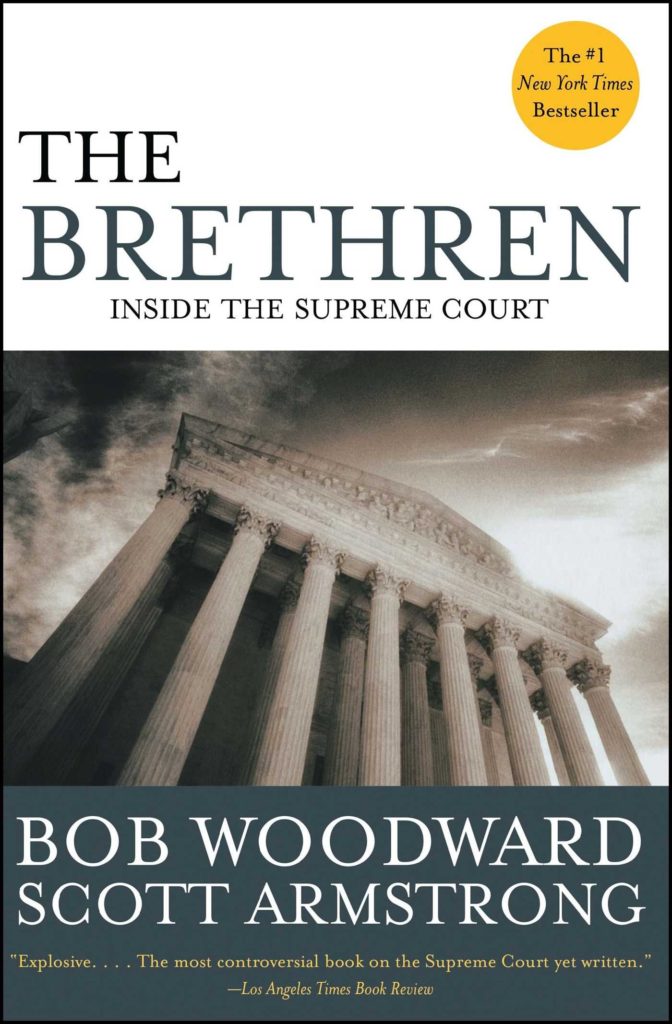What used to be is gone and what ought to be ought not to be so hard

Unlike Paul, I have no sources with current inside info on the Court now — my DMs are open people! — but I do know some former clerks, and all have confirmed that Breyer very much thinks of himself as a master strategist, someone who is able cut best-available deals with conservative justices. The most obvious public remnants of this are Breyer (along with Souter) leaving his attempts to get a deal for a new count based on a 14th Amendment violation in his published opinion, which has led to two decades of people asserting that ACTUALLY Bush v. Gore was 7-2 and 2)he and Kagan going along with Roberts’s re-writing of the Medicaid expansion despite knowing that the holding was extremely dumb. The first was actually harmful; the second would have been worth doing if it was really necessary to save the rest of the ACA, although my guess is that Roberts would have done what he did no matter what. At any rate, in addition to the proximate causes identified by Paul, one has to think that Breyer figuring out that these days are really, really over — Roe and much of the New Deal regulatory state and who knows what else — are gone and there’s nothing he can do about it produced something like an existential crisis. (I’m reminded of Larry Tribe announcing that he was going to stop updating his con law textbook.)
Breyer’s particular conception of the Court is not unusual for liberals of his generation. Bob Woodward and Scott Armonstrong’s The Bretheren was a hugely influential book — a highly entertaining inside look at the Court, much of which was even true. The first years of the Burger Court were conservative ones on balance, but were also a context unusually ripe for strategic deal-making. Most of the Court’s conservatives — Stewart, White, Blackmun, Powell — were also idiosyncratic, leaving the possibility for getting opinions liberals could live with. (Stewart was the hero of the book because he was talking directly to Woodward.) And even Warren Burger had a Nixonian love/hate relationship with the liberal Establishment in which he resented them but wanted their respect. Rehnquist was the only modern reactionary on the Court, the one who welcomed the hatred of liberals and the press. In that environment, William Brennan’s strategic thinking really did produce some wins, and a lot of liberal legal elites from that era surely like to see themselves in that role.
I wish, though, that more people read Edward Lazurus’s Closed Chambers, an inside account from the post-Reagan Court, which wasn’t as influential despite a Curb Your Enthusiasm plug. Brennan was still very strategically minded, trying to eke out deals and salvage what he could. The problem is that the new generation of conservative justices found this off-putting and insulting, and Brennan was treated with total derision in the conservative chambers, becoming a bitter and isolated figure. O’Connor and Kennedy would sometimes break with the conservatives, but it was always for their own reasons. The anecdotes about Brennan holding up five fingers to his clerks should be replaced by Federalist Society clerks holding up one finger.
Still, the stories about the 70s Court retained their power. They were a way for people who weren’t dumb enough to think that the Court was apolitical but did think that conservative justices could, at bottom, always be reasoned with to maintain their belief that the Court was fundamentally legitimate — just realist enough not to be ridiculous, but not nearly realist enough for what was coming. I hope we can all recognize that Brennan is dead and it’s Rehnquists all the way down now.
Cue the first “liberal” member of the Supreme Court bar to write an op-ed saying that if Democrats were serious about restoring the legitimacy of our sacred institutions they would re-institute the filibuster for Supreme Court nominations.
I have immense respect for Breyer as a man & a jurist, but I worry this decision reeks of partisanship. If the Court becomes just another instrument of partisan politics, then we’re truly lost. What about waiting until a 2nd Trump term to prove this isn’t about Team R & Team D?— Isaac Chotiner (@IChotiner) January 26, 2022
…in comments, a couple of people remembered that Lazurus’s book was greeted with a great deal of criticism for his violation of the Court’s self-serving omerta. The most prominent of these critics was…Alex Kozinski, whose belief that what happens in chambers should stay in chambers was surely motivated by the purest of concerns about the Sacred Integritude of the Federal Judiciary and not any base self-interest.


